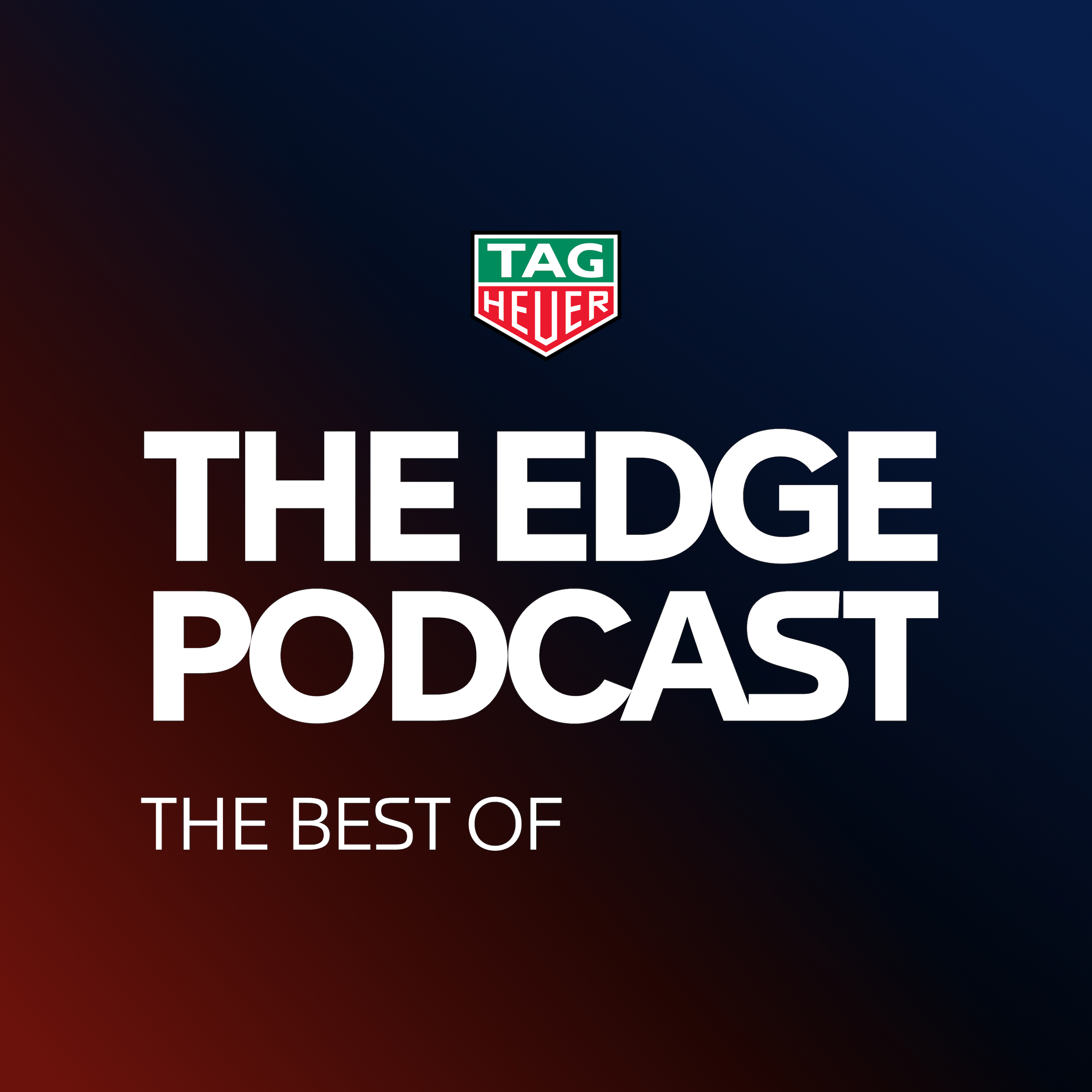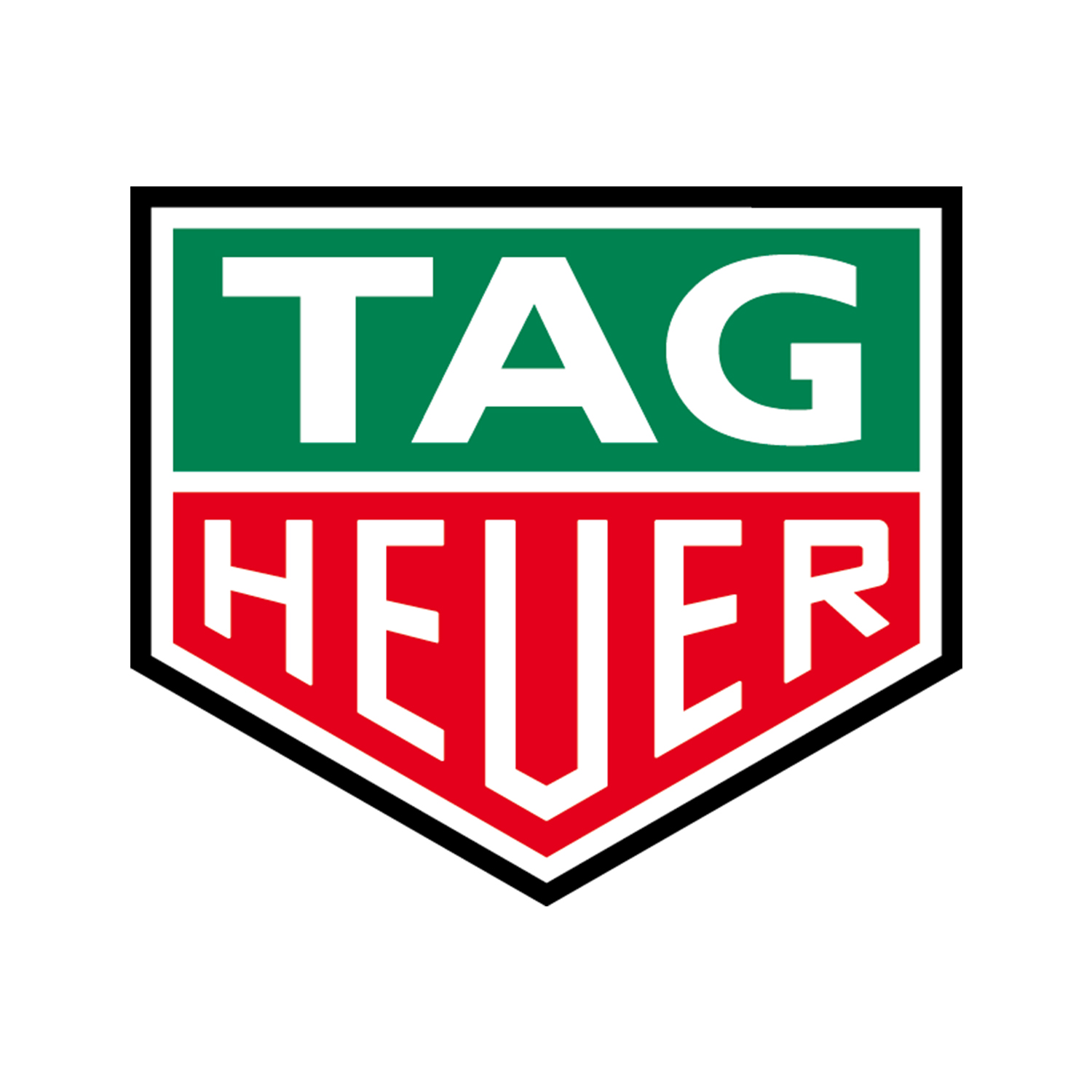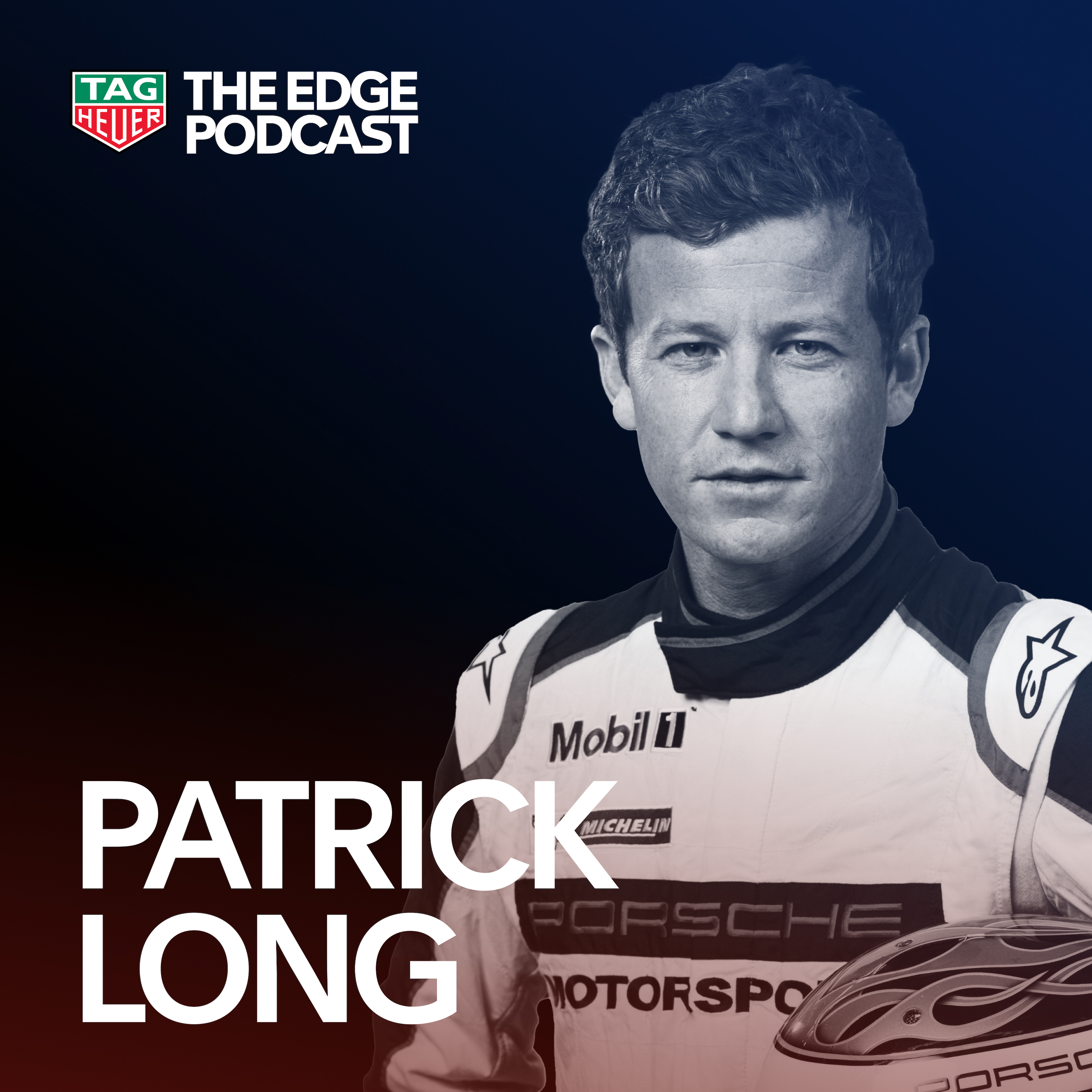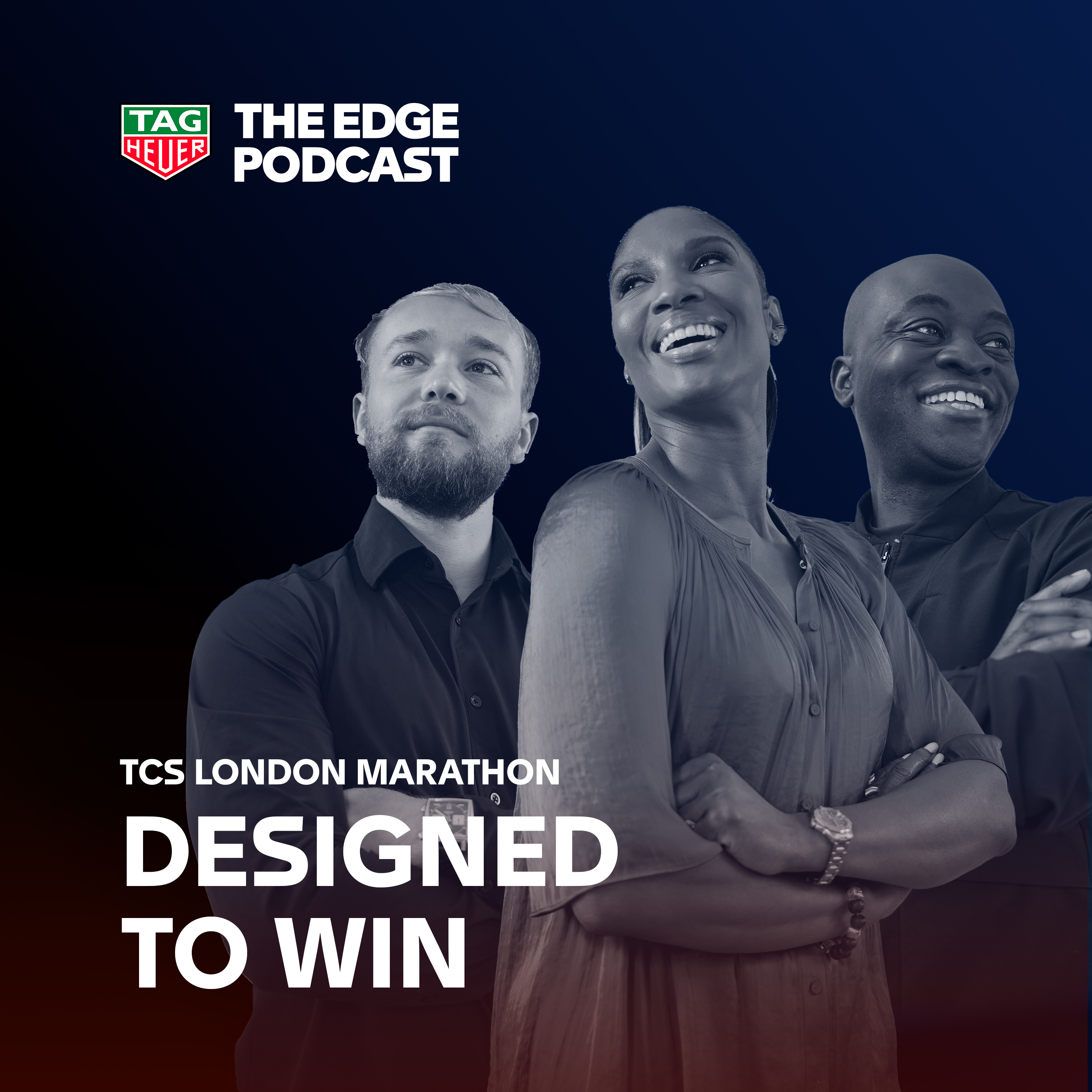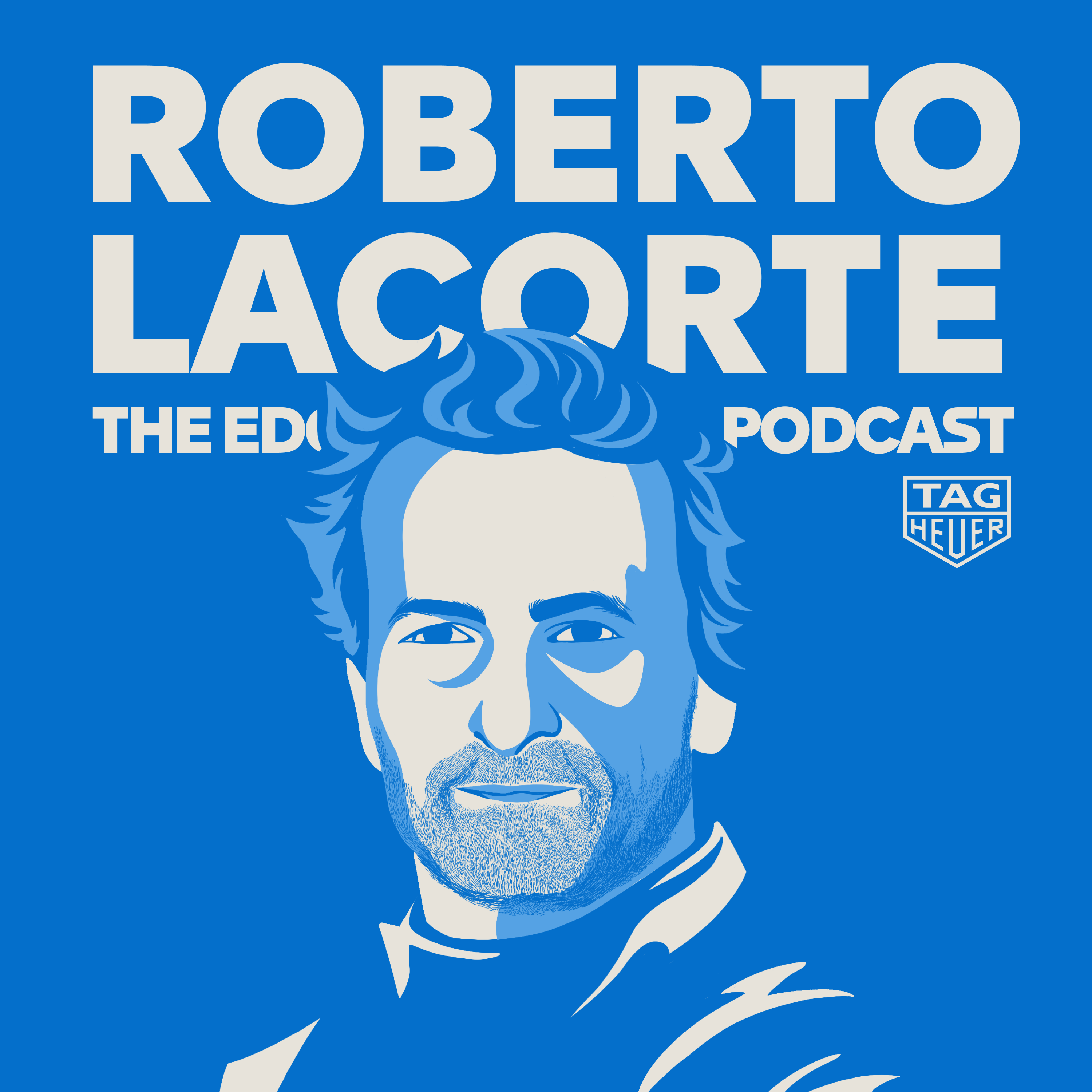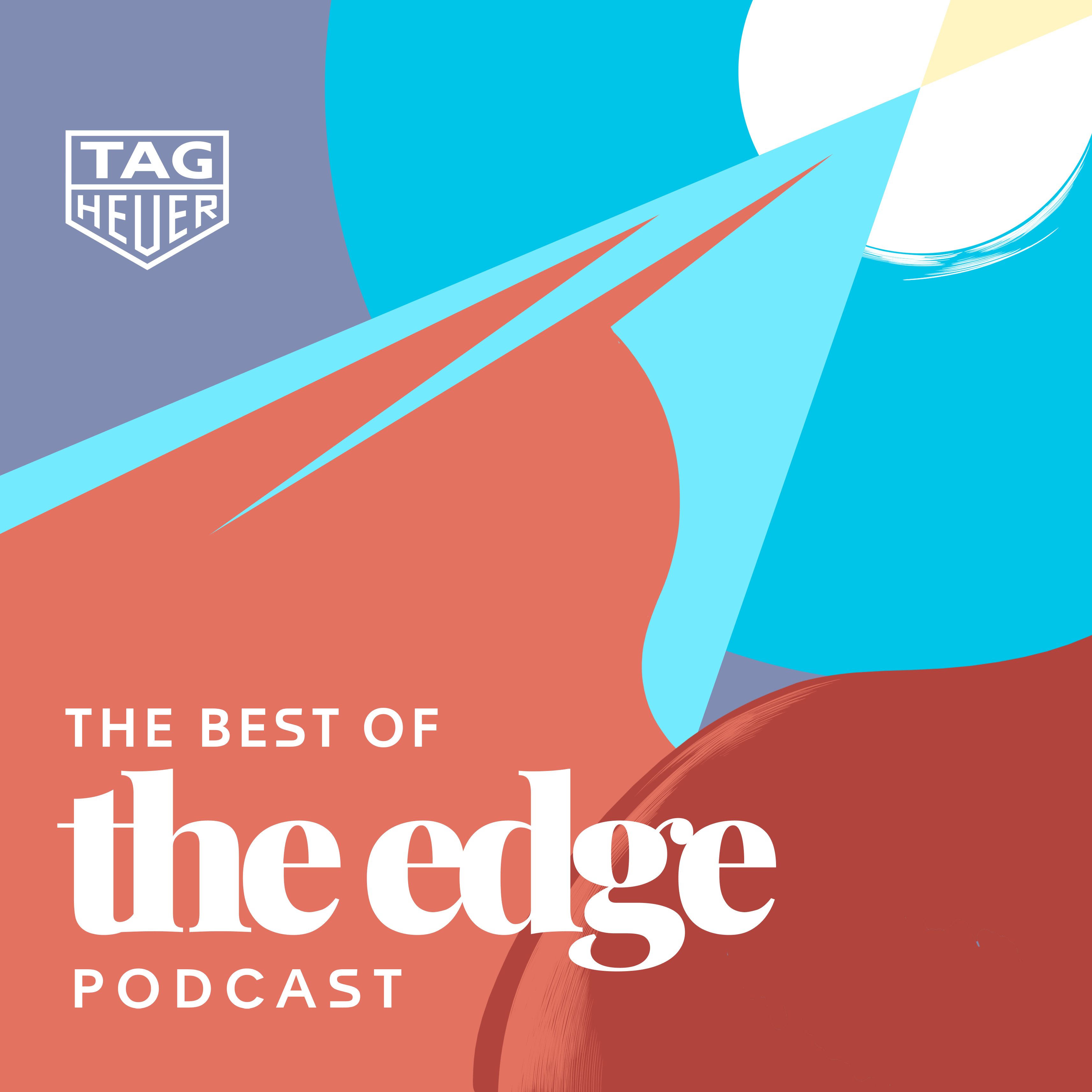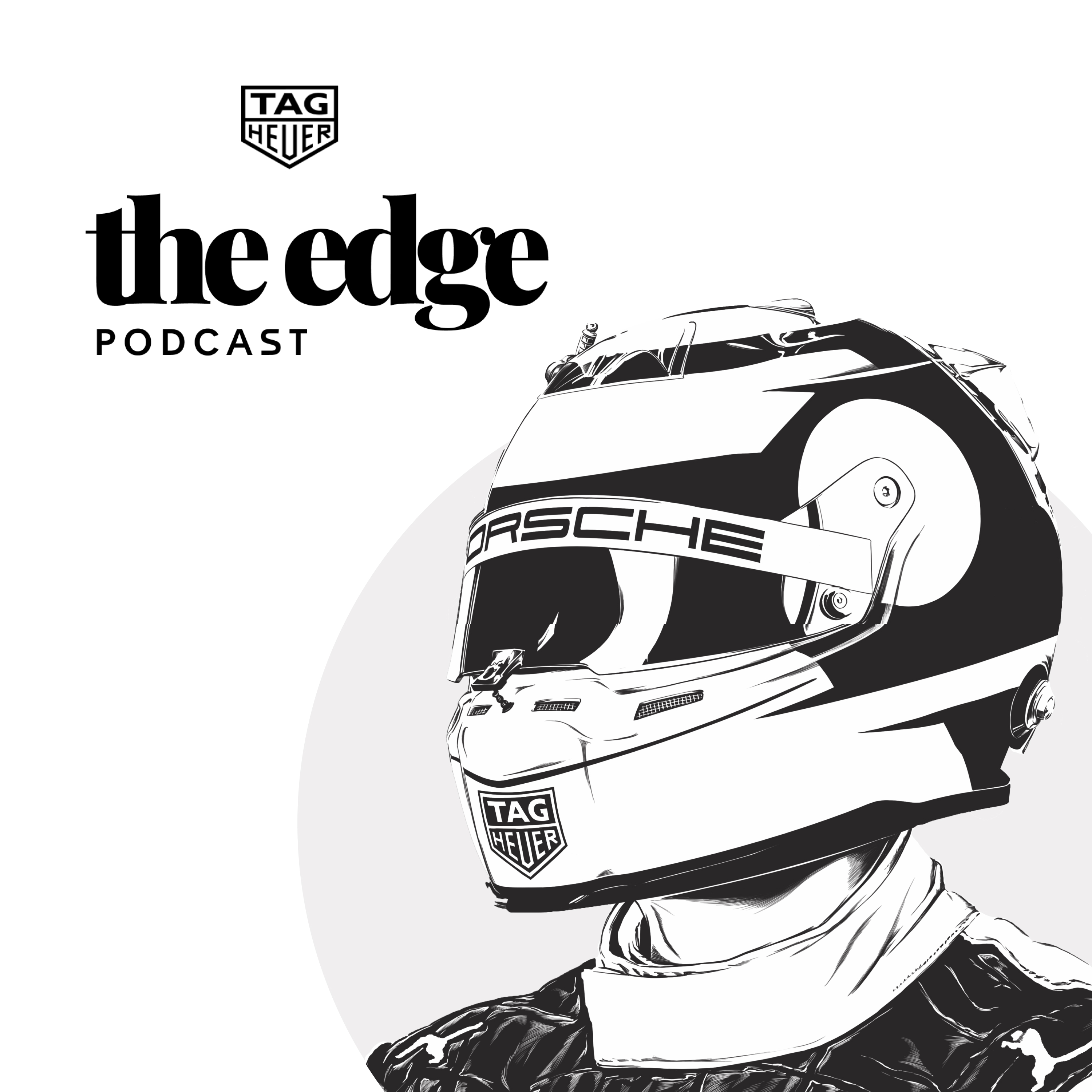Episode Transcript
[00:00:02] Speaker A: Hello everybody, and welcome to a very special episode of the Edge, a podcast by TAG Heuer. I'm your host, Naomi Schiff and this is the season four finale. To celebrate the conclusion of another exhilarating series, we've curated some of our favorite moments featuring our exceptional guests. This season, we had the privilege of speaking with three visionary entrepreneurs.
First up was Steven Melbourne, the co founder of Melbourne Golf, whose mission is to inspire today's youth to embrace what his brand calls the greatest game on earth. Next, footwear and clothing designer Ronnie Feig shared the philosophy behind his lifestyle brand Kith and his creative collaboration with TAG Heuer. And 30 years after F1 legend Ayrton Senna's fatal crash, we spoke with his niece, Bianca Senna, the CEO of the Senna brand. Bianca reflected on the origins of the Ayrton Senna Institute, her uncle's vision, and how his legacy continues to inspire people today.
Throughout the season, we were also joined by remarkable individuals from diverse fields. Elite cyclist Corey Williams recounted the pivotal moment that shaped his career and highlighted his team's influence on the cycling community. Racing driver turned TV and web host Justin Bell reminded us of the significance of motorcycle sport's prestigious Triple Crown. Kite surfing champions Gisela Pulido and Liam Whaley opened up about overcoming challenges, recovering from injuries and competing at the highest level.
To complement our conversation with Bianca Senna, actor Gabriel Leone, the star of Netflix series Senna, shared the thrills, challenges and nuances of portraying such an iconic figure on screen. So swimming sensation Karl Chalmers joined us to discuss how he thrives under pressure, whilst tennis star and four time Grand Slam champion Naomi Osaka reflected on her triumphant 2021 Australian Open victory. Each of these guests left us feeling inspired, so we wanted to extend a heartfelt thank you to all of them for sharing their incredible stories. Now let's rewind the clock and revisit the best of season four. This is the Edge, a podcast by TAG Heuer.
We begin with Gisela Pulido, who relives the moments that led to her securing a spot for her country at the European Championships in 2023.
[00:02:36] Speaker B: There was something that happened the last day of the competition that almost cost me to lose the spot because I was thinking more about winning the competition itself. So I was in the semifinal and I managed to win one race and the second race I crashed because I was fighting with the other girl and I crashed my kite and I was like, okay. And the polished girl was right behind me. So if she finished in front of me, she will get the spot. But I crashed my kite. But I relaunched it so fast and I got on my board and I kept going and I managed to go in front of the Polish girl. So if I wouldn't be able to relaunch my kite in time, probably the Polish girl would have qualified. So it was not smart. I have to say, it was not smart. I was just thinking, I have to beat this girl in front of me. And because of that, I crashed and I almost lost the qualification. So it was not smart at all. But I was just so like, no, I need to win. I need to win this mindset. Luckily, luckily, I got it.
[00:03:42] Speaker A: Wow. So it really did come all down to the. To the wire. It wasn't all straight cut and easy. Now you have to describe to me what it felt like when you finally secured the spot. What was going through your mind, and did it feel different to any of your other victories?
[00:03:57] Speaker B: It felt big because, I mean, it's the Olympics, right? It's my dream. It's like I was dreaming of going to the Olympics since I was, I don't know, six, seven years old, since I know that the Olympics exist. So when I crossed the finish line and I said, okay, I got it. I was like. I didn't realize. It was like, no, this is not true. This is not true. This is a joke. It took me a while to accept it until I went home after the whole day, packing, media, everything, and I went on the shower and I open the water and the water starts falling in my head and I'm, you know, like in the shower and then I celebrate, you know, Then is when I was like, okay, I got it. That was the moment I said, okay, it's mine.
[00:04:46] Speaker A: Wow, that is. It's giving me goosebumps listening to that. That's amazing. And I can still see the joy coming out of you. Now. Is there one memory that really stands out from the day?
[00:04:57] Speaker B: I think the thing I have in my head is like, when I crash and I look back and I saw the Polish girl coming to me, I was like, oh, my God. I mean, it can't be happening. So I was like, okay, I just have to get up quickly and go. And that thing is like a flashback, you know, I have it in my mind so many times because it's a mistake. I did that. At the same time, I'm really happy that it happened there. So I'm not going to do it again. I'm not going to, you know, like, do the same mistake. So it's something that it's staying already in my head for a while. And yeah, something I think about it.
[00:05:35] Speaker A: Next. Footwear and clothing designer Ronnie Feig shares how consumers shape the philosophy behind his lifestyle brand Kith.
[00:05:45] Speaker C: What makes it all worth it is when I see people wearing the product that I'm here to create. And I think that product, in some ways, obviously, we're not curing cancer and reinventing the wheel here, but what I think we are able to do is we are able to change lives by a very small percentage. But that percentage matters to me. And we're able to change, you know, change lives by. By offering incredible product that people feel emotionally attached to and, you know, certain things, like, for example, if I was to give you a cupcake right now, that would change your day for the better, you know, and to give you and uplift you for that moment is.
[00:06:33] Speaker D: Is.
[00:06:33] Speaker C: Is an important part of anyone's day is to be uplifted and be emotionally attached to anything they do, you know, so whether you have a hobby of, you know, sports or film or music, you know, a lot of people within our market are very emotionally attached to the product that they wear, and it's part of their individuality, you know, And I think that the journey that some people have had following us and evolving with us throughout the years, they've been able to be a part of this evolution where the product has gotten progressively better. And they're seeing it through my lens, which to many people make them feel.
They feel related, and it's more relatable to the brand when they see it through a person's lens. So I think that the journey has been incredible. And it's not like we're looking at the blueprint. There is no blueprint to follow. There is no, you know, there's no book I can read as to, like, you know, how and when we do certain things. It's really been learning on our behalf of having to continuously one up what we've done in the past. And that feeling has grown stronger and stronger over the years for what we've been able to accomplish. So some of these projects that we work on, including obviously this one with Tag, those are milestones for myself personally, but also notches in the timeline for the brand. So there are before and after moments at the brand, and these huge moments change our brand and evolve our brand. And it's always for the better because for me, it's like I'm trying to accomplish as much as I can in my lifetime. And I've been able to do a lot through the brand and what the brand has been able to achieve. So that's what it means, you know, is it all, it's all worth it for me when we are able to change people's lives for the better. And when I say that, it's not like I'm looking to cure anything or like I'm just trying to make people feel a bit happier with the product they buy and give people more than what they pay for. That's always been the motto for us.
[00:08:47] Speaker A: Absolutely. So that brings me perfectly onto something I wanted to ask you about your philosophies around customer relations or how the customer interacts or experiences your brand. Whether what's so important with you about your motto of customer receiving more than what they paid for?
[00:09:04] Speaker C: Oh, that's a great question. I think that the experience that people have most importantly in the shops, so the investment and the time that we put into building our stores I think is the most important part of people's experience with the brand.
And when we say give people more than what they pay for, like people don't pay for the spaces that we build. That's our investment. And we overspend purposely into giving people an experience where they can spend, you know, a part of their day going to the shop and feeling great about, you know, what they're able to either buy or what they're able to do when they come to the shop. Whether they're reading a book, looking through, you know, sifting through a magazine, getting, getting ice cream at the shop at Kith treats, able to meet their friends there just to, you know, meet like minded people, to discuss product, hang out with the staff.
That those are, those are the most important parts of the experience of what people can experience when shopping the store. And we always have worked backwards from people coming in and just smiling, you know, when they leave the shop, whether they're buying something or not. It's like we just want a better people's day. And I think that that concept has, has then turned into some of the shops that you see today where we open a Sedal's, for example, in Paris and we bring bagels to Paris, right. And that's an experience that I think we've been able to give Parisians that they haven't had elsewhere. And just the, just the ability to do that is never taken for granted. For me, you know, that's something that I consider to be, you know, a blessing, is the ability to serve people and to give people an experience that they haven't had in the past. So that we can affect people's lives and for them to then care about the brand and emotionally attach themselves to the brand in various ways.
[00:11:11] Speaker A: Three time world champion and F1 legend, Ayrton Senna's enduring legacy continues to inspire people everywhere. His niece, Bianca Senna, CEO of the Senna Brand, shares how the Ayrton Senna Institute is bringing his vision to life.
I'd like to focus on maybe some of the highs along this journey that you've been on with the Senna Institute and the whole Senna Brand. Are there any moments that you can recall where you really saw the institute's vision come to fruition?
[00:11:40] Speaker E: I think every day that you listen to a child saying how their life changed through school and through being in the program that we provide, it is really touching. I'm just going to pick one story. Most of the children in Brazil are poor. When they are 10 to 12, they are still not able to read and write. And one of our projects is to basically make them read and write in a very short period of time. So it's about, in a year you can make them read and write. And that changes completely their lives. Because we are like, remember when you go to, I don't know, to China or to Japan or to, you know, the Saudi Arabia, Arabia, like, you cannot read anything that is, you know, in the, you know, in the streets. And that makes you feel blind, right? Like, it feels hope. You feel like hopeless sometimes. And that's how children in Brazil are feeling, because they cannot read anything. They cannot, you know, participate in the world that we have today. And that. That happens also to their parents usually. Like, if they have a parent that is not literate, that means that the probability of them not being literally literated as well, it's, you know, very big. So the story that, like, there was. There was this boy that, you know, he learned how to read and write and his dad didn't. And then he started teaching his dad how to read and write. And then he taught his. Her mother, his mother, and then the whole community around him, because that's the impact that you can do with, you know, one person that can be changed. That's. That's usually what they want to do. They want, you know, share that with, with others. And there are many children that actually want to be teach teachers when they grow up because of that.
[00:13:35] Speaker A: It's just incredible, as you say, to see how far just touching one person's life can go and how it can even affect an entire community.
[00:13:42] Speaker E: Exactly.
[00:13:42] Speaker A: Effy, can you describe to me what impact it has on you, though, when you see something like that happen, what sort of emotions do you feel? And, you know, how exactly does that make you feel? What mood does it put you in?
[00:13:54] Speaker E: I think it's a mixed feeling. I think first is obviously proud, you know, to be involved on, you know, that change in so many lives. But at the same time, it gives us a sensation of that that's not enough because there are so many other people that, you know, needs to be helped. And so it's a mixed feeling, you know, like it's. It's almost like you are always trying to do something that is almost impossible, you know, because there are so many children that need that help. But, you know, at the same time, we need to be proud of what we have achieved, and we know that this is a lot, much more than any other, you know, institute is able to do in Brazil. And we just have to keep fighting, keep doing it and finding people and other, you know, connectors to help us on this cause. And I think Tag Heuer is one of the ways to do it, because through the buying, like when you buy a cine watch, part of of the revenues coming from that Senna Watch will be invested in the foundation as well. So, you know, there are many ways to be involved. It's not just like, being there and, you know, doing the, the. The work on the school, but also, you know, there by buying stuff, by, you know, sharing what we do, by, you know, donating. There are many ways that you can be involved on that cause.
[00:15:20] Speaker A: Portraying an icon like Ayrton Senna on screen is no easy feat. Actor Gabriel Leone reveals how he prepared for the lead role in the Netflix series Senna and tackled the challenges that it presented.
So the answer to that question is no. I absolutely cannot imagine what that must be like. I mean, to be honest, as a former racing driver myself, I always find it magnificent or amazing to see how 30 years on, as you say, Senna passed in 1994 on the 1st of May. I find it incredible to see how his legacy has continued to live on in the homes of people as if he was still around. So I totally understand the power of Senna, but even more so to Brazilian family. So, yeah, just talk me through your emotions, because I know you said you were about to explode, but truly, what did that mean to you in that moment to hear that you were going to be playing his role and maybe even when you were experimenting with hair and makeup, like looking in the mirror and thinking like you were going to be Senna for this, for this role.
[00:16:20] Speaker D: Yeah. So when I got the new. It was a year before shooting, so I was. I had to let it go for a while, you know, because I had to focus to concentrate on Ferrari, the work I had at that point. And actually after Ferrari, I did two other jobs, two other way, different characters before I played Senna. So it was like, my God, I can't believe I'm gonna be playing him. But let's just forget about it for a while and keep on working, keep living. Of course I was. I mean, I couldn't. Of course I couldn't forget about it. But just to say, focus wise, you know, so 2023, I did the third season of this series for Prime Video, also a Brazilian series.
Third and last season I did it and it was crazy because the character I played there was also a real guy and he couldn't be more different from Senna.
Santa was born in Sao Paulo. That guy was born in Rio just like myself. And I was blonde at that time. And the guy was like a criminal addicted to cocaine. You know, his energy couldn't be more different from Santa's. So. And like two weeks after I wrap, I wrapped this series, I flew to Buenos Aires to start prepping for Santa. So. And to be honest, I don't look at myself and instantly see Santa on me, you know, I mean, I think we have like, maybe the same profile, I'd say. But it's not like, just like people have been saying now that Colapinto really looks like Santa, you know, his hair and his face expressions and his style and stuff. So I don't feel the same with me. So I remember started looking at myself, trying to find Santa in me, and it wasn't easy, definitely. I mean, now I can say it was definitely the biggest challenge of my career.
It was tough, especially because, just like you said, because of how Senna is still remembered all over the world, how people still idolize him and remember his physicality and his voice, his energy, his, you know, and you have like loads of material out there, videos and stuff of them. So I knew from the beginning that I would have to work my best to be as similar as possible as him, you know, for people to look at me, to people to watch me and identify in Senna for them, for they to immerse themselves in the show.
So it wasn't easy for sure. But we worked a lot, we experimented a lot. Like we tried wigs, we tried all that stuff. And the key we found to make me look more similar to him Was our makeup designer is just a genius. He's amazing. And he started, like, making my main characteristics up. So he was kind of erasing myself, like, making me as an empty page, a blank canvas for them to start finding and brushing myself, Santa's smallest details. And we were trying a lot, like, with the hair and all that stuff. And so I remember one day, like, a couple of days before starting shooting, we had, like, a test camera. So we went to set and we were like, we had the whole team and costumes and hair, makeup, all that stuff. We were really, like, shooting for real, but not shooting.
And someone took a picture of mine. I was waiting, like, on the outside, holding a cup of coffee and sent me the picture later. And I remember looking at the picture and thinking, I found him. You know, it was the first time I looked at myself and I saw Senna.
And that was really important to me because that made me and of course, the whole team confident that we got to this image and that then that we could live. Then we could start our journey, living his most iconic moments of his life, you know, and of course, I'm just talking about physicality, but of course, I was doing all the research, reading, watching, you know, talking to his family, to people close to him, and trying to find. Trying my best to find his essence. Of course, all the interior of Santa. And just to. To be short, I found it paying attention at his eyes.
I started really focusing on his eyes in any videos I found of him, you know, because I. I think Santa's eyes and the way he looked really reveals who he was and his essence, his feeling, the human being behind the driver.
[00:22:33] Speaker A: And that's a wrap on season four of the Edge. Thank you for listening. If you'd like to hear from more extraordinary visionaries, athletes or artists, then make sure to check out our previous episodes and seasons wherever you get your podcasts. And if you enjoyed listening to us, then please don't forget to subscribe and leave us five stars. It truly does make a difference. You can also head over to the Edge, our Tag Heuer magazine, to discover more stories, interviews, and news about the latest Tag Heuer timepieces. We'll make sure to leave a link in our show notes. Thank you to our wonderful Season 4 guests for joining us. And of course, a big, big thank you to each and every one of you, our listeners, for tuning into the Edge, a podcast by Tag Heuer.
